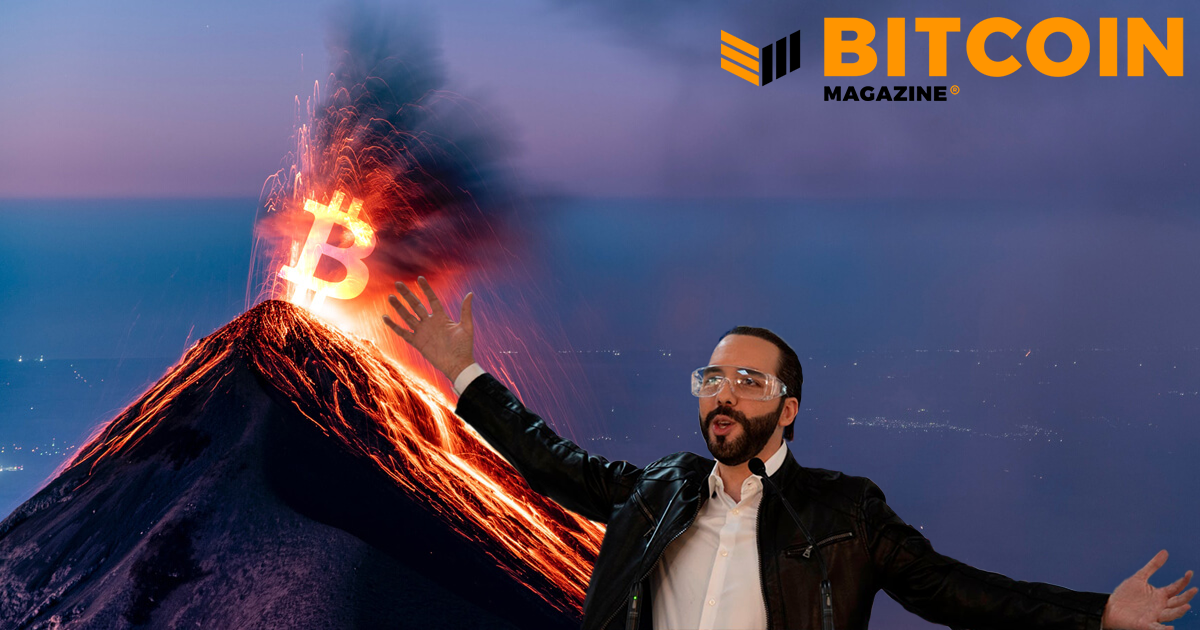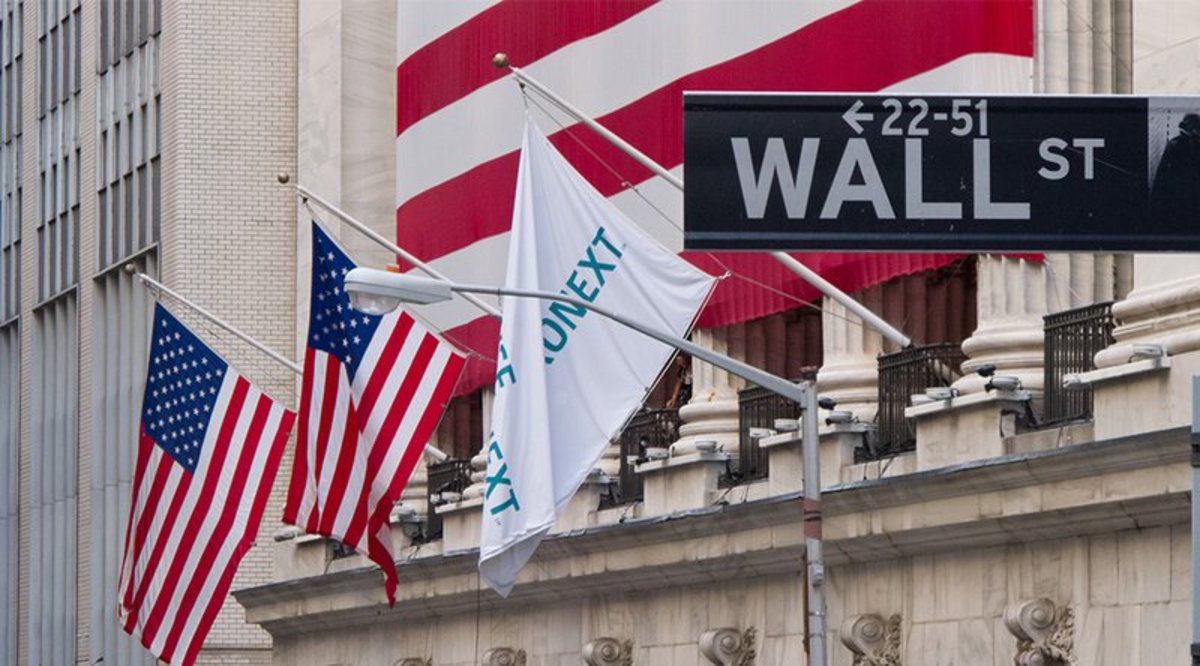Month: May 2024
$2 Billion In Spot Bitcoin ETFs: Millennium Management Reveals Investment In SEC Filing
In a new disclosure, investment management company Millennium Management has revealed holdings of almost $2 billion in spot Bitcoin ETFs. This revealing was made through a SEC 13F-HR institutional investment manager holdings report filed today, and underscores the increasing interest and investment in Bitcoin ETFs by major institutional players.
JUST IN: 🇺🇸Millennium Management discloses it holds $2 billion in spot #Bitcoin ETFs in new SEC filing 👀 pic.twitter.com/hHzlWbHr9c
— Bitcoin Magazine (@BitcoinMagazine) May 15, 2024
The firm reported owning for a combined total of $1,942,591,163:
– $844,181,820 of BlackRock’s iShares Bitcoin Trust
– $45,001,320 of ARK 21Shares Bitcoin ETF
– $44,737,805 of Bitwise Bitcoin ETF
– $202,029,915 of Grayscale Bitcoin Trust
– $806,640,303 of Fidelity Wise Origin Bitcoin Fund
Millennium Management’s substantial investment comes just a day after the State of Wisconsin Investment Board (SWIB) disclosed its holdings of almost $100 million in BlackRock’s spot Bitcoin ETF (IBIT) and $62 million in Grayscale’s GBTC. This wave of institutional interest highlights a growing trend among major financial entities to include Bitcoin ETFs in their portfolios.
The recent surge in 13F filings has seen a variety of institutions announcing their Bitcoin ETF holdings. This includes not only investment firms like Millennium and SWIB but also traditional financial giants such as JPMorgan Chase. JPMorgan, America’s largest bank, recently disclosed its own holdings in spot Bitcoin ETFs, noting its role as a market maker for these investment vehicles.
The trend signifies a broader acceptance and integration of Bitcoin into mainstream financial markets. Bitcoin ETFs, which provide a regulated and accessible way for institutions to gain exposure to Bitcoin without holding the asset directly, have been gaining traction since their launch in the United States earlier this year.
Millennium Management’s nearly $2 billion investment in spot Bitcoin ETFs marks one of the largest institutional commitments to date. The ripple effect of disclosures like this are likely to be far-reaching.
Creator of the Bitcoin ASIC Says Next Wave of Mining Efficiency is Coming
It is no secret that the bitcoin mining industry is being battle-tested in the wake of the fourth halving. Hash price (revenue per terrahash) has reached historic lows as bitcoin’s block subsidy has been slashed. Meanwhile, the post-halving mempool frenzy has waned, adding fuel to the fire on already strained mining operators.
Nangeng Zhang, Founder and CEO of Singapore-based Canaan Inc, the creator of the first bitcoin mining application-specific integrated circuit (ASIC), sat down with Bitcoin Magazine for the firm’s first-ever interview with a North American media outlet to weigh in on the state of the industry. Zhang commented on the origins of bitcoin mining and offered his perspective on the landscape for chip design as well as trends in environmental sustainability.
Zhang also identified burgeoning opportunities for Bitcoin in the Middle East, as well as the convergence between the bitcoin and artificial intelligence (AI) industries.
Listen to the full audio interview featuring Canaan CEO Nangeng Zhang on the Bitcoin Magazine Podcast. Click here to tune in.
The Open Source Core of Bitcoin Mining
Canaan, founded in 2013, revolutionized mining with the launch of its first AvalonMiner ASIC machine – marking a turning point in computational efficiency for those securing the Bitcoin network. As the industry moved away from traditional GPU and CPU-based hashing, the embracing and commodification of specialized ASIC hardware saw commercial-scale mining operations begin to take shape.
This step-change by Canaan did not occur in a vacuum, but led to the ubiquitous proliferation of ASIC-based hashing after the firm open sourced both its Avalon hardware and management software. Zhang noted that this embrace of the open source movement in the early days of bitcoin was “not a decision” but rather “a requirement for anyone who wants to get involved in the blockchain community” and a means “to decentralize computing power all over the world.”
“The best way to defend against [51% attacks], was to rapidly distribute ASIC-based computing to users worldwide”. In Zhang’s estimation, the risk of a 51% attack has greatly diminished due to the democratization and wide-scale deployment of ASICs. The open source nature of Canaan’s chip design has since led major firms including China-based Bitmain and computing stalwart Intel to create their own ASIC machines.
Running (Bitcoin) Up Against Moore’s Law: Trends In Chip Efficiency
Canaan, as a designer of ASIC chips, has been a beneficiary of the boom in semiconductor manufacturing over the past decade-plus. At the heart of this progress lies Moore’s Law – an observation that computational efficiency has approximately doubled every 2 years. Today, firms including Taiwan Semiconductor (TSMC), Samsung (SSLF), and Semiconductor Manufacturing International Corporation (SMIC) are ramping up towards 3 nanometer chip production in this quest for optimization.
However, the move toward smaller and smaller scale architectures for semiconductors is not without challenges. Increasing transistor density on smaller and smaller chips, namely, sub-2 nanometer scales, invokes quantum, rather than classical, effects. This regime shift leads to transistor malfunction and a potential divergence with Moore’s Law.
The question has now become: will Moore’s Law hold, or is the classical computational boom becoming a quantum bust?
Zhang, faced with the question of these fundamental constraints on ASIC computation, acknowledged “in the past, when we boosted performance, the cost per terrahash went down. Today, this curve has flattened. This indicates that technological advancements are entering a new phase.”
“We are indeed seeing a slowdown in the advancement of process nodes, promoting us to adopt new transistor technologies like GA (gate array) or nanosheet technologies along with backside power delivery. This is not just making the surface smaller, but changing the structure of the circuit [itself].”
“Bitcoin computing appeals to a purely digital logic, but today, we are moving closer to a mixed signal design for analog implementations.” This increase in complexity, according to Zhang, suggests the need for “design technology co-optimization (DTCC)” between designers such as Canaan and the foundries that produce the chips themselves.
Despite these challenges, Zhang believes that AISC efficiency is “still on the rise for the next 3-5 years” and the company plans to release at least 1 new product per year with “over 20% efficiency gains” per generation.
This efficiency gain was on display at the Bitcoin Asia conference in Hong Kong on May 9th, where Canaan launched its next-generation A15 AvalonMiner, boasting an 18.5J/T efficiency in comparison to the ~20J/T afforded by the previous A14 model. Zhang noted the A15 as being particularly optimized for variable environmental conditions.
In particular, Canaan has enabled overclocking capabilities in the A15, and Zhang poked fun at the common refrain from buyers who often remark: “‘oh you can get extra performance for free?!’” Sadly that’s not the case, according to Zhang, but the added capabilities promise to create additional operational flexibility for customers of the A15.
Decentralizing Computation: A Look To The Middle East
Now, more than ever, miners are on the lookout for efficiency gains to… *drumroll*… reduce their costs and increase revenue. This is, of course, par for the course, but miners are turning to new technologies and geographies in their quest for cheap power.
Zhang noted a strategic shift on the part of Canaan to meet this change in the market, emphasizing the firm’s recent move to partner with mining firms in the Middle East region. “[The Middle East] is eager to invest in high-tech industries. These countries are particularly welcoming to Bitcoin and cryptocurrency. The Middle East holds great promise to become a crucial digital hub.”
On the topic of regulation in the Middle East region, Zhang noted that the region has “quickly advanced in establishing complimentary regulatory frameworks for mining”. It follows that firms like Zero Two – backed by Abu Dhabi’s sovereign wealth fund – have made significant strides to integrate bitcoin mining and its waste heat for the purpose of saltwater desalination.
Heat Check: Trends In Mining Sustainability
Since Canaan’s IPO on the NASDAQ in 2019, the bitcoin market has been on fire, and along with it, bitcoin mining companies. Publicly traded megaminers like Marathon Digital Holdings Inc (NASDAQ: MARA) and Riot Platforms (NASDAQ: RIOT) became household names during the 2020-2022 bull market upon bitcoin’s arrival to the mainstream.
But, with the increased visibility, also came increased scrutiny from environmental organizations, notably the Ripple-funded and ill-conceived Change the Code campaign led by Greenpeace USA.
When asked about environmental criticisms of mining, Zhang appeared unphased, welcoming discussion of sustainability in the mining sector. “Perceptions of bitcoin mining as environmentally unfriendly are changing… bitcoin mining can help to develop renewable energy industries.”
In particular, the Canaan CEO praised heat recapture as perhaps the biggest trend yet to play out in both residential and commercial applications. “Mining heat recovery products have started this year. I think in a few years, I believe people will see many very impressive products that utilize heat from mining. Today, we can generate near-boiling water from mining operations.” This trend, he believes, underlies mining’s sustainable attributes and a general trend towards heat monetization in mining as a whole.
Zhang also emphasized the hydropower industry, whose power often suffers from a supply-demand mismatch, as a key area where mining could supercharge renewable deployment.
In lieu of battery storage, Zhang posited that “[bitcoin mining] can allow these facilities to operate at full capacity most of the time. This can reduce the payback period to about 5 to 10 years – that means the same amount of capital can develop twice as many hydro-stations in the same time frame… the same principle applies to other renewable energy resources like solar and wind energy driven purely by economic factors.”
He believes that mining will continue its trend toward low-carbon energy resources and expressed optimism that the market dynamic driving the pursuit of low-cost energy shows that “mining can automatically balance between environmentalism, economic efficiency and development.”
AI and Bitcoin Convergence: Developing and Scaling Energy Assets
Typically, Bitcoin miners have been pioneers in the power markets, flocking to where power is abundant, and demand is low. The symbiotic relationship between underdeveloped energy resources, and the inherently flexible and mobile network of bitcoin miners, has driven ASIC-based computation to develop resources on the edge of the grid. But, according to Zhang, this is not the end of the story.
He sees a new relationship forming between AI data centers and bitcoin miners each searching for the lowest-cost energy inputs. Zhang made note of “major players” and “early movers” that have begun to realize the potential integration between bitcoin mining and AI computation.
“In this context, bitcoin mining can serve as an initial occupant of this [stranded] energy, [generating] economic benefits before AI computing power fully comes online. This is what we have seen in the past 6 months.”
Zhang also foresees co-location of AI high-performance data centers and bitcoin mining even after AI facilities are up and running: “Given the redundancy requirements for large-scale AI computing centers (25-30%) of power redundancy… bitcoin mining can use the redundant power and shut off when [AI comes online].”
Conclusion
The zero-sum mining industry, as always, continues to be its own worst enemy. Coupled with the fourth halving, reduction in margins, and the next wave of ASIC efficiency, it would be fair to say that gleaning a profit from mining could be as easy as squeezing blood from a (digital) rock.
But, on the margin, positive trends are taking place in the industry – and the Canaan CEO sees opportunities abound for enterprising mining and ASIC firms willing to blaze a trail on the energy and artificial intelligence frontiers.
The State Is The Terrorist In The Case Against Samourai Wallet
“The State is any entity that can retrospectively pardon a crime. If you forgive a murder, you get an army. If you forgive an assault, you get police. If you forgive a theft, you get taxes. And this notion that there exists the sovereign ability to change the rules for a limited number of people and grant them licenses to do things that would otherwise be criminal gives you a very clear definition of the State. The State is what washes your hands when you do something that is inherently wrong.” @leashless
The recent imprisonment of the developers of Samourai wallet implies a new attack by the United States government on privacy, financial freedom, and especially the use of cash.
They accuse the owners of Samourai of conducting money transmission without a license and of not adhering to the draconian anti-money laundering and anti-terrorism financing measures.
First, they are accused of money laundering, a crime that in any libertarian legal system would not be considered a crime. In any system of social organization, whether minarchist, capitalist, libertarian, anarchist, agorist, or any other moderately rational form, for there to be a crime, there must be a victim. That is to say, punishing anyone is not allowed unless they have victimized another person. For there to be a victim, there must be non-consensual harm to another person. Only communist or pro-communist systems can tolerate the exacerbated fascism of punishing individuals even though they have never harmed anyone.
The crime of money laundering according to current law essentially consists of the action of concealing the illicit origin of funds obtained through illegal activities seeking to bring that money (illegally) into the legal financial system to give the appearance that it comes from legitimate activities. That is, a crime without harm. In other words, an action that clearly should not be punishable. It is even an action that deserves to be rewarded. Does not the “criminal” who decides to use his money to acquire goods and services that does not harm third parties help society as a whole? Does society benefit from hindering the use of money by criminals? Why does the State promote the penalization of an absolutely innocuous activity like using money when it has already prohibited harmful activities against third parties, which are what make someone a criminal? Do not the voluntary disclosure programs or amnesty programs promote exactly the same action as the crime of money laundering but with the exception that in that context the behavior is legal? So, given that money laundering laws sporadically accept the action, why not accept it always? And if the action accepted by the money laundering laws (basically the same as laundering) harms society, why are they allowed? Either laundering truly does no harm and should not be illegal, or money laundering laws harm society and therefore should be illegal.
On the other hand, the practice of terrorism can be defined as the exercise of domination over another person based on imparted terror. Therefore, terrorism financing is financial assistance to an entity dedicated to dominating others based on imparted terror. In both this case of Samourai Wallet and that of Tornado Cash, Silk Road, and many others similar, the State has failed to demonstrate financial assistance to the alleged terrorists they claim to combat. If one truly wanted to combat terrorism financing, one should start by combating tax collection and money printing. Key financial instruments that contribute to the economy of the only duly proven terrorist. There is no doubt that in cases like the three mentioned above, and many others, the State arrests people in order to impart terror to other developers of similar ventures.
Finally, it should be noted that the State has no legitimacy to issue and control licenses and permits that are inherent to each man by his own human nature. In any moderately rational system of social organization, the private actions of men that do not affect third parties cannot be subject to state regulations. If a person owns a lake and allows another to fish there, the State has nothing to do with that, neither “granting” nor taking away rights, in this example “fishing licenses.” Along the same lines, there is no room for state intervention if a person wants to offer the service of money transmission for other people who voluntarily accept it and who are not victims since they have not suffered harm or made any claims against that person.
Fortunately, Bitcoin fixes all this by defunding the State and opening the possibility of transmitting value in a decentralized, peer-to-peer manner without intermediaries. But the road to hyperbitcoinization is not and will not be obstacle-free. The pursuit of maintaining the status quo and maximum control over individuals is not something the Leviathan will lose without a fight. In the meantime, many innocents will pay the cost of daring to engage in activities not expressly endorsed by the masters of the world. But I have no doubt that, eventually, the battle for freedom will be won by humanity as a whole. We are better than them in every way, we produce more, we are smarter, more creative, and resilient. And although each individual’s hand-to-hand fight against the State is physically lost by the former, as in this case of Samourai Wallet; being distributed and being many more than them, in the long run, the battle will be won with the help of the insurmountable walls that Bitcoin and cryptography help us build.
This is a guest post by Camilo JdL. Opinions expressed are entirely their own and do not necessarily reflect those of BTC Inc or Bitcoin Magazine.
Volcano Bitcoin Mining Gives El Salvador $29 Million Boost
El Salvador has mined nearly 474 bitcoins worth around $29 million since September 2021 using geothermal energy from the Tecapa volcano, official data revealed. This boosts the country’s total bitcoin holdings to 5,750 BTC valued at over $360 million.
JUST IN: 🇸🇻 El Salvador mined nearly 474 #bitcoin worth $29 million using volcano-fueled geothermal power in last three years, Reuters reports. pic.twitter.com/bBACoe9GzM
— Bitcoin Magazine (@BitcoinMagazine) May 15, 2024
The renewable energy mining operation is a collaborative effort between El Salvador and bitcoin mining firms like Foundry USA, Antpool, ViaBTC, F2Pool, and Binance Pool. It utilizes the geothermal power from Tecapa, one of El Salvador’s many active volcanoes.
Of the 102 megawatts generated by the state-owned geothermal power plant beside the volcano, 1.5 megawatts go toward Bitcoin mining. President Nayib Bukele has installed 300 specialized mining processors to facilitate the process.
El Salvador made headlines in 2021 by becoming the first country to adopt bitcoin as legal tender. Despite criticism from the IMF and others, Bukele has remained committed to Bitcoin, with a Bitcoin mining operation powered by volcano-fueled geothermal energy embodying this forward-thinking approach.
Click the image to learn more.
The country’s mining accomplishments stand in stark contrast to the scrutiny bitcoin miners face worldwide over energy usage. By tapping geothermal energy from Tecapa, El Salvador provides a renewable model for potential adoption elsewhere.
The $29 million mined demonstrates the substantial, real-world value unlocked by El Salvador’s status as the first Bitcoin nation. As more renewable mining comes online globally, the country’s volcanic model provides an ambitious precedent.
Ex-BlackRock Bitcoin ETF Lead Appointed New Vanguard CEO
Vanguard, one of the world’s largest investment firms, has named a new CEO: Salim Ramji, who previously led BlackRock’s ETF business and helped launch its spot bitcoin ETF, IBIT in January.
JUST IN: Vanguard appoints Salim Ramji as a new CEO, a former Blackrock’s #Bitcoin ETF lead.
Earlier, Vanguard refused to offer BTC ETF 👀 pic.twitter.com/KEq7KeJ3q7
— Bitcoin Magazine (@BitcoinMagazine) May 15, 2024
Ramji will replace Vanguard’s outgoing CEO, Tim Buckley. Buckley has been publicly critical of Bitcoin and opposed offering Bitcoin ETF products to clients.
Under Buckley’s leadership, Vanguard refused to provide its brokerage customers access to U.S. spot bitcoin ETFs that were approved by the SEC.
The appointment of Ramji, set to take effect July 8, signals a potential change in Vanguard’s stance. As head of BlackRock’s iShares division, Ramji oversaw the launch of the iShares Bitcoin Trust ETF.
Ramji has spoken positively about the technology underpinning Bitcoin and its potential to remove friction in financial markets.
His experience pioneering Bitcoin ETFs at BlackRock has many wondering if he will now push for similar offerings at Vanguard.
Click the image to learn more.
According to Bloomberg ETF analyst Eric Balchunas, bringing in the bitcoin-friendly Ramji means the door is “much more open now” for Vanguard to embrace Bitcoin.
The company offers index funds and ETFs to both retail and institutional investors.
As a massive player in the ETF space with over $7 trillion in global AUM, Vanguard launching a spot bitcoin ETF would be an important milestone for further mainstream adoption.
Forex: Credit Agricole says EUR/JPY is overvalued
Post Content
Dollar drops to one-month low vs euro before key CPI test
Post Content
UBS raises EURSEK targets, cites Riksbank cut and inflation
Post Content
Japan will keep close communication with BOJ on forex, finance minister says
Post Content
Dollar drifts as traders eye US inflation data; frail yen in focus
Post Content








